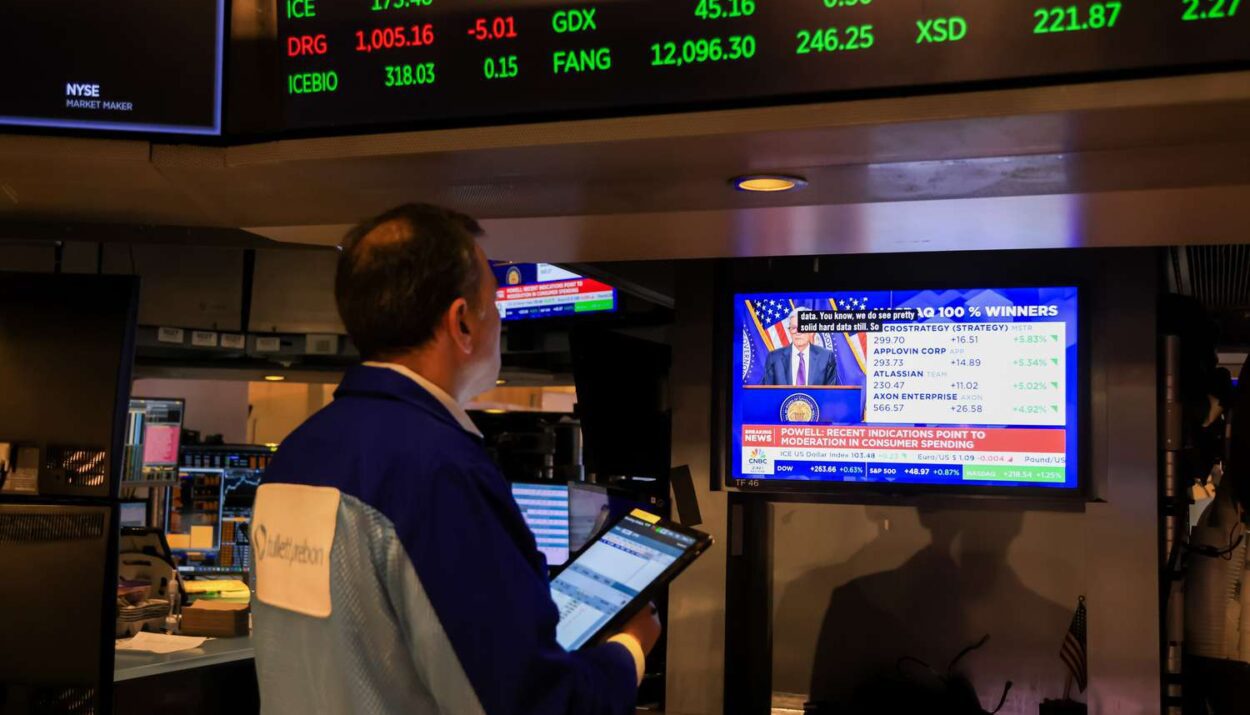The Elon–Trump feud triggered headlines, but the real shift is deeper. Washington is now diversifying away from Musk’s firms. And some defence and space stocks are perfectly positioned to benefit.
As the clash between Elon Musk and Donald Trump escalates, headlines are fixated on the politics. But beneath the surface, US government institutions are undergoing a critical shift — one that could have lasting impacts on defense and space infrastructure stocks.
Insiders say this isn’t just a feud — it’s a procurement rupture. And five companies are now being revalued as Musk-dependent systems are deemed too politically risky.
Related: NASA and Pentagon Scramble for SpaceX Alternatives
Why Musk’s Leverage Is Unwinding
For years, Musk’s companies thrived not just on tech but on proximity — to power, capital, and government goodwill. SpaceX became NASA’s go-to. Starlink made itself indispensable to defense. Tesla’s FSD benefited from regulatory leniency. But that era may be ending.
The turning point came when Musk reportedly threatened Dragon resupply missions amid his spat with Trump. That weaponization of mission-critical assets broke the trust barrier — and once that happens in Washington, it doesn’t reverse.
Now, agency leaders aren’t just upset. They’re reallocating.
5 Stocks That Benefit from the ‘De-Muskification’ Trend
1. Rocket Lab ($RKLB)
- Already seen as a Falcon 9 alternative, Rocket Lab’s Neutron is now being accelerated as a necessary redundancy.
- Institutional buyers aren’t waiting for it to match SpaceX — they just want a non-Musk option.
2. AST SpaceMobile ($ASTS)
- Once seen as speculative, now viewed as the only near-term global comms solution that’s not reliant on SpaceX hardware.
- Defense clients are increasingly wary of any comms tied to Musk-controlled assets.
3. Mynaric (private/German-listed)
- Known for optical terminals, Mynaric is being repositioned as a core defense redundancy layer.
- Starlink may still dominate, but military planners want insurance — and Mynaric is it.
4. Redwire ($RDW)
- Its components are already inside Blue Origin, Boeing, and Northrop programs.
- These programs will now receive fast-tracked budgets because they’re not Musk-dependent.
5. BWX Technologies ($BWXT)
- Long partnered with DARPA, BWXT’s nuclear propulsion tech becomes a budget priority.
- If Falcon Heavy reliability is in question, BWXT’s timeline becomes NASA’s hedge.
Autonomy: The Quiet Exit from FSD
While not a stock, Google’s Waymo is another silent winner. Government-backed autonomy programs are shifting away from Tesla — not due to performance, but due to political risk. Transparency and stability matter more than hype when federal dollars are involved.
It’s Not Just the Drama — It’s the Memory
The key here isn’t whether Musk and Trump reconcile. It’s that the institutional memory of political fragility has already taken root. Procurement officers aren’t gambling on Musk staying aligned with US interests. They’re building alternatives.
Every dollar that now avoids Musk’s stack — SpaceX, Starlink, FSD — is a dollar that won’t return. The trust perimeter has been breached.
This isn’t a trade on Twitter drama. It’s a repricing of risk — and a shift in the government’s procurement stack that could last a decade.
Rocket Lab, ASTS, Redwire, BWXT, and Waymo aren’t just speculative plays anymore. They’re part of a new procurement doctrine: De-risk. De-Musk. Diversify.
Related:
Disclosure: This article does not represent investment advice. The content and materials featured on this page are for educational purposes only.
Trump says relationship with Musk is over and threatens him
Elon Musk Empire Under Fire: What Trump’s Revenge Could Mean for Tesla and SpaceX
“You Mean Man Who Lost His Mind?” — Trump Slams Door on Musk
Timeline of Elon Musk and Donald Trump “Break Up”
Why Trump Can’t Just Quit Elon Musk — Even After Their Public Breakup










